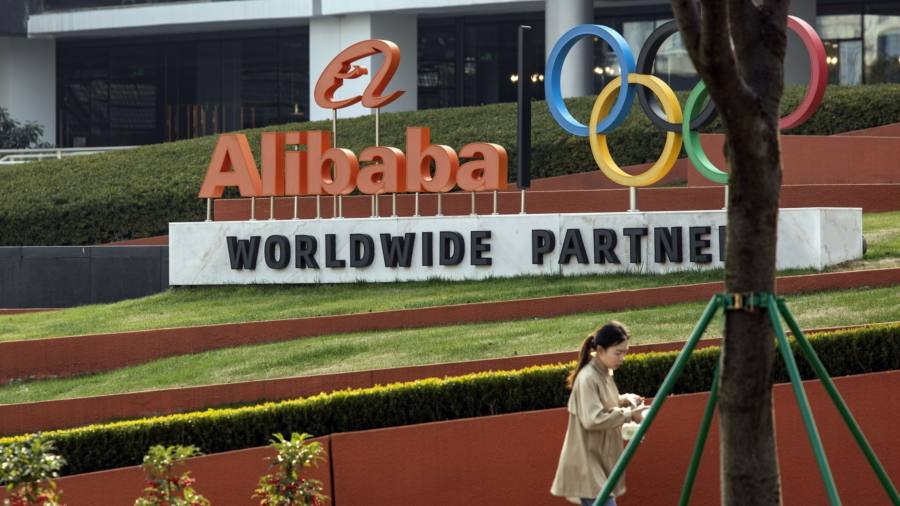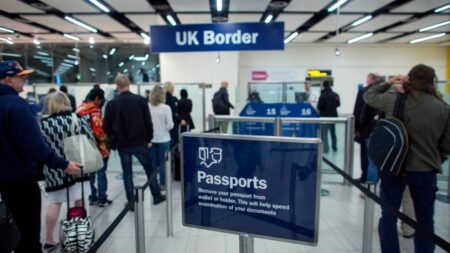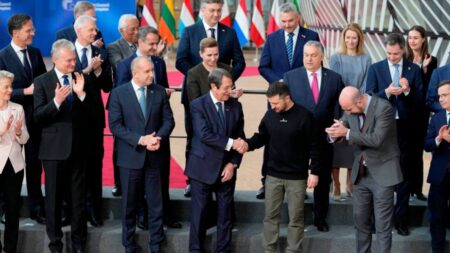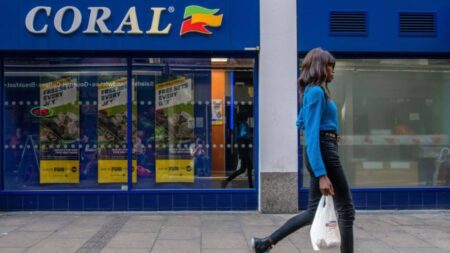Alibaba is planning a radical shake up to split off its logistics, cloud and local services from its main ecommerce business in a bid to bolster the ailing Chinese tech giant’s share price.
The reorganisation will turn Alibaba into a holding group, with each of its six main business units led by a separate chief executive and board empowered to bring in outside capital or list publicly, the company said. It added the revamp would “unlock shareholder value and foster market competitiveness”.
“The market is the best litmus test, and each business group and company can pursue independent fundraising and IPOs when they are ready,” chief executive Daniel Zhang said in a letter to employees.
“At 24 years of age, Alibaba is welcoming a new opportunity for growth,” he added.
The group has suffered a difficult past two years, during which it has had to contend with a record $2.8bn fine by Beijing regulators for monopolistic behaviour, as well as stuttering Chinese economic growth and a rush of new ecommerce competitors.
Alibaba presented the restructuring plan to Chinese regulators before announcing it publicly and received positive feedback, according to two people close to the matter. One person close to the ecommerce group said that while no formal demands were made for the split, regulators remained keen to see China’s tech giants slim down their empires.
The six business groups will be dedicated to cloud, ecommerce, local services, logistics, digital commerce and media.
Zhang will remain as chief executive and chair of the Alibaba holding group and head up its struggling cloud business which he took over in December.
Alibaba’s main moneymaking units — its Taobao and Tmall ecommerce platforms — will remain wholly owned by the main company.
Alibaba’s announcement comes just a day after founder Jack Ma returned to mainland China, a trip Beijing hopes will boost investor confidence that its rapprochement with the private sector is genuine.
A speech by Ma in Shanghai more than two years ago set off a broad crackdown on China’s largest tech groups and led to the suspension of Alibaba fintech arm Ant Group’s initial public offering.
Alibaba’s shares have lost more than 70 per cent of their value since then, leaving it with a market capitalisation of about $220bn. The group’s New York-listed shares gained more than 9 per cent in premarket trading following news of the shake-up.
Louis Tse, managing director at Hong Kong-based Wealthy Securities, said the reorganisation was likely to help realise the full value of the group’s different businesses.
“If you spin these off into different listings, you’ll get a higher market value,” Tse said.
Wang Qi, co-founder of boutique fund MegaTrust Investment (HK), said that in addition to increasing shareholder value, “the new structure may help Alibaba deflect some of the regulatory pressure such as that related to anti-monopoly”.
The break-up will set Alibaba on a similar path to its ecommerce rival JD.com, which has retained a controlling stake in a diverse set of businesses. Each unit has gone on to raise outside capital with several already listed in Hong Kong.
Alibaba’s chief rival Tencent has been slowly divesting the stakes it holds in China’s other major internet groups, cutting its stake in food delivery group Meituan and ecommerce retailer JD.com.
A senior manager at Alibaba said that all six business groups had been operating separately for several years and had plans for IPOs in the short term.
“This statement is an open admission of this reality, no more hiding,” said the manager.
Goldman Sachs analysts estimate the group’s ecommerce business holds the vast majority of its value, worth about $103 a share, followed by Ali Cloud at $16 a share and its international business at $12 of value.
The investment bank’s analysts estimated that all the businesses together were worth $137, a premium to its Monday closing price of $86.
Robin Zhu of Bernstein said the plan would leave a lot riding on the timeline for bringing in outside capital, which Alibaba left unclear in its news release.
Additional reporting by Edward White
Source: Financial Times

















